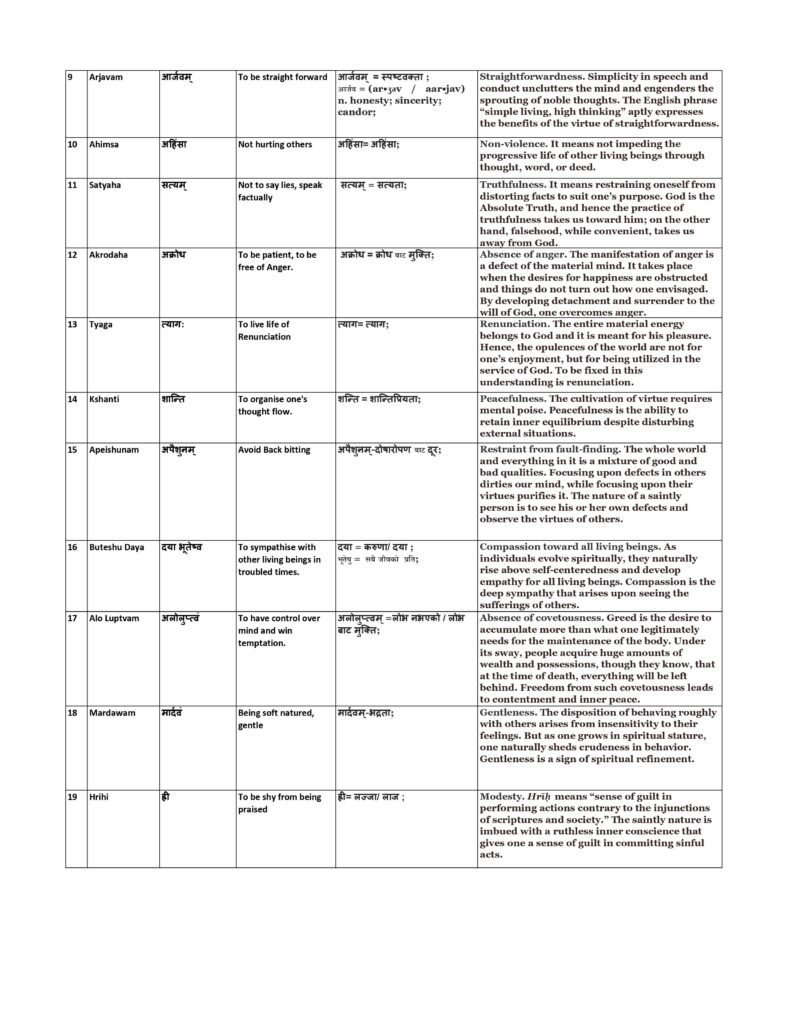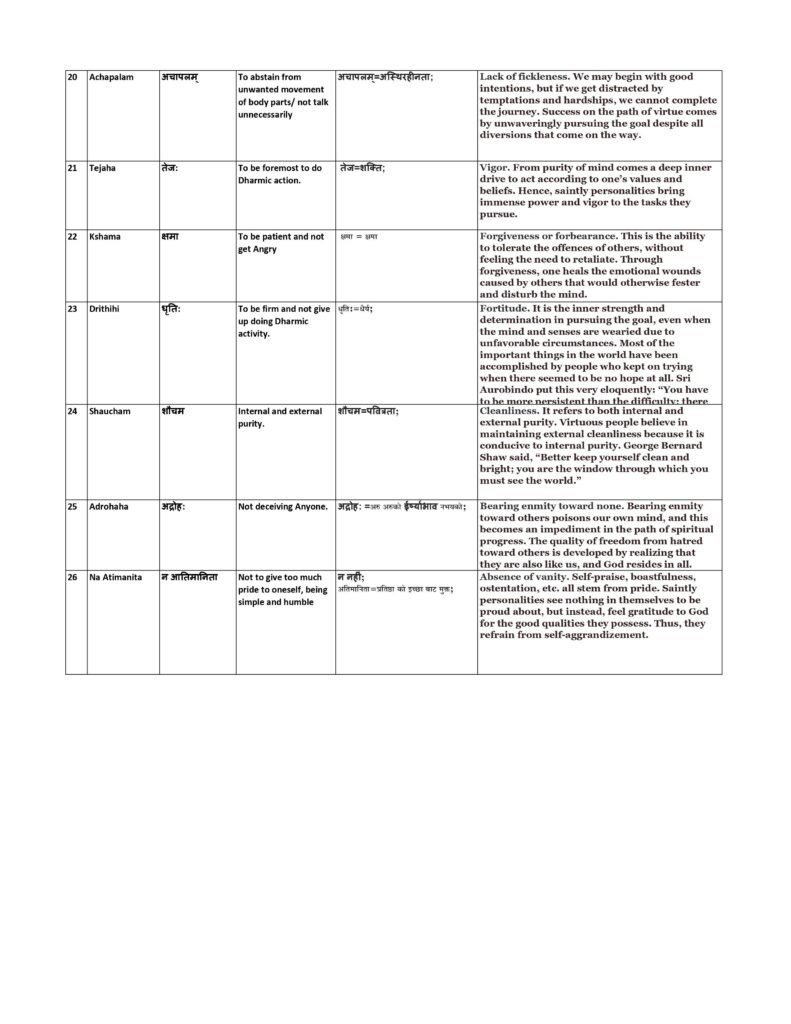
In the Bhagavad Gita, Chapter 16 describes the divine and demoniac natures of individuals. It doesn’t explicitly list 26 gunas (qualities) that one person should have. Instead, it presents contrasting qualities found in individuals with divine and demoniac natures. These qualities serve as guidelines for self-assessment and understanding one’s character. Here are some of the important qualities mentioned in Chapter 16:
Divine Qualities:
- Fearlessness
- Purity of heart
- Steadfastness in knowledge and wisdom
- Charity
- Self-restraint
- Sacrifice
- Forgiveness
- Compassion for all beings
- Absence of anger
- Non-attachment
- Contentment
- Truthfulness
- Absence of malice and arrogance



Demoniac Qualities:
- Hypocrisy
- Arrogance
- Conceit
- Anger
- Harshness
- Ignorance
- Impurity
- Delusion
- Dishonesty
- Pride
- Irritability
- Greed
- Cruelty
The text emphasizes that those with divine qualities attain spiritual growth and liberation, while those with demoniac qualities remain bound in materialistic pursuits and suffer from constant strife and dissatisfaction.
It is important to note that the Bhagavad Gita is a profound spiritual text and should be understood in its entirety and within its cultural context to gain a comprehensive understanding of its teachings.
Chapter 16, Verse 1-3
The Blessed Lord said: Fearlessness, purification of one’s existence, cultivation of spiritual knowledge, charity, self-control, the performance of sacrifice, study of the Vedas, austerity and simplicity; nonviolence, truthfulness, freedom from anger; renunciation, tranquility, aversion to faultfinding, compassion and freedom from covetousness; gentleness, modesty and steady determination; vigor, forgiveness, fortitude, cleanliness, freedom from envy and the passion for honor-these transcendental qualities, O son of Bharata, belong to godly men endowed with divine nature.
